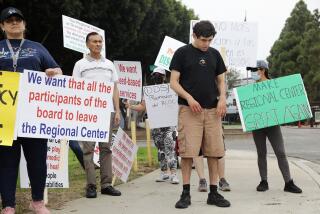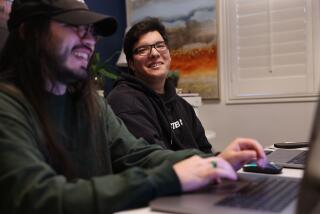Readers React: The ‘listening’ done by researchers to those affected by autism
To the editor: Although it can be argued, as Steve Silberman does, that there is not enough funding “committed to serving the needs of autistic people and their families,” that doesn’t mean such research doesn’t happen. (“Autism Speaks needs to do a lot more listening,” Op-Ed, Aug. 24)
At UC Santa Barbara’s Koegel Autism Center, we work on numerous funded grants to help those on the spectrum and their families. For example, the California Department of Rehabilitation has contracted with us to provide services that target social and behavioral skills so individuals can work toward success in employment. We also get funding — from Autism Speaks, in fact — for a project that fosters positive social environments for those on the spectrum by developing peer-mediated interventions.
The Koegel Center is not alone in listening to those with autism and helping them to be heard.
Robert and Lynn Koegel, Santa Barbara
The writers are director and clinical director, respectively, of the Koegel Autism Center.
..
To the editor: Silberman’s Op-Ed article is badly needed. I come from a family with multiple autistics, and I cannot fathom why Autism Speaks sticks to worst-case-scenario descriptions while consistently using the 1 in 66 statistic that includes everyone on the spectrum.
Autism Speaks seems unaware that autistics have concern for those who suffer from the most severe autism-related problems. We want the best support and education for everyone in the larger autism family. We aren’t necessarily thrilled by prenatal testing that could prevent the birth of babies who might be on the autism spectrum.
We are extremely interested in recognizing the basic humanity of everyone on (and off) the spectrum. We hope to create a rising tide to lift all boats.
Jennifer Myers, Fullerton
Follow the Opinion section on Twitter @latimesopinion and Facebook
More to Read
A cure for the common opinion
Get thought-provoking perspectives with our weekly newsletter.
You may occasionally receive promotional content from the Los Angeles Times.






